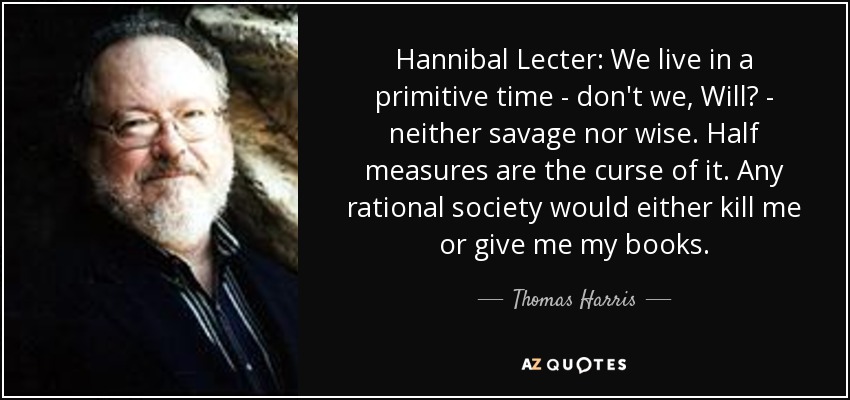Novels
Films and television
The first adaptation was the 1986 film
Manhunter, which was an adaptation of
Red Dragon, directed by
Michael Mann.
The next adaptation was 1991's
The Silence of the Lambs, which was directed by
Jonathan Demme and was the first film to feature
Anthony Hopkins in the role of Hannibal Lecter.
Silence was a success, both critically and financially, and went on to become the third film in
Academy Awards history to win in all
top five categories (
Best Actor for Hopkins,
Best Actress for
Jodie Foster,
Best Director for Demme,
Best Adapted Screenplay for
Ted Tally, and
Best Picture). Hopkins reprised the role in the next two films, 2001's
Hannibal, a sequel directed by
Ridley Scott, and 2002's
Red Dragon, a prequel directed by
Brett Ratner. In 2002, Hopkins revealed that he had written a screenplay for another sequel, ending with Clarice killing Lecter but it was not produced.
[1]
In 2007,
Hannibal Rising was released. The film is a prequel, directed by
Peter Webber and starring
Gaspard Ulliel as Lecter.
In 2013, the TV series
Hannibal premiered. Developed by
Bryan Fuller, it is not a direct adaptation, but based on characters and elements from the novels. Some male characters have become female, such as Freddy Lounds, who is renamed Fredricka "Freddie" Lounds. The series has garnered much critical acclaim since its premiere, winning the 2014 and 2015
Saturn Award for
Best Network Television Series, as well as the inaugural
Best Action-Thriller Television Series in 2016.
In 2016, when asked if there were any sequels that he wished he could revisit, Hopkins said, "I made the mistake of doing two more [Hannibal Lecter movies] and I should have only done one."
[2]
In 2017, Foster reprised her role as Starling in a skit titled "Clarice Probes Hannibal Lecter About Trump's Russia Ties" on
The Late Show with Stephen Colbert, opposite
Stephen Colbert as Hannibal Lecter. In the skit, Clarice questions Lecter on his relationship with
Donald Trump and what he can tell her about his relationship with
Russia.
[



